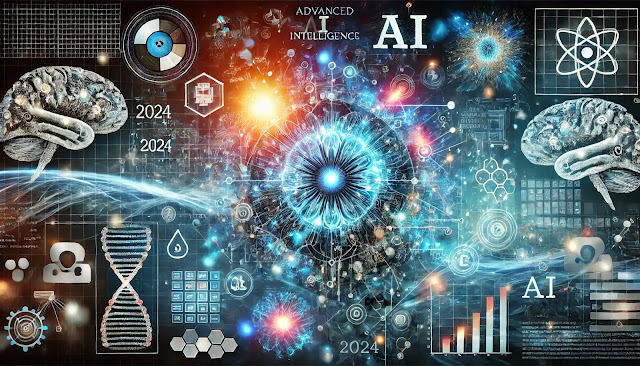How AI is Enhancing Cloud-Based Business Intelligence
Artificial Intelligence (AI) and cloud computing have been game-changers in the realm of business intelligence (BI). Individually, each technology offers transformative benefits, but when combined, they are revolutionizing the way businesses operate, creating value, and gaining competitive advantages. So strap in and get ready as we explore how AI is supercharging cloud-based business intelligence.
AI and Cloud-Based Business Intelligence: A Winning Combination
Cloud-based business intelligence is the next logical step in the evolution of data analysis. Traditional on-premise BI systems are limited by hardware constraints, high costs, and lack of scalability. Cloud BI offers a more flexible, scalable, and cost-effective solution. It allows businesses to access and analyze data from anywhere, fostering collaboration and informed decision-making.
Enter AI. By integrating AI with cloud-based BI, businesses can unlock unprecedented insights and efficiencies. Here’s how:
- Automated Data Management
- Data Storage and Organization: AI algorithms help manage vast amounts of data stored in the cloud. Machine learning models can sift through data repositories, organizing and categorizing it in ways that make it easier to query and analyze.
- Data Cleaning and Preparation: AI automates the tedious process of data cleaning and preparation, identifying and correcting errors, missing values, and inconsistencies.
- Enhanced Data Security
- Threat Detection: AI-powered systems continuously monitor network traffic and security logs to detect potential threats in real-time, making cloud BI environments more secure.
- Access Control: AI algorithms can also help in managing and enforcing data access policies, ensuring that sensitive data is only accessible to authorized personnel.
- Advanced Analytics
- Predictive Analytics: Machine learning models analyze historical data to identify trends and patterns, providing businesses with predictive insights that inform strategy and decision-making.
- Natural Language Processing (NLP): NLP allows users to interact with BI systems using natural language queries, making it easier for non-technical users to extract insights from complex datasets.
Real-World Case Studies
- Cox Communications: Smarter Business Decisions
- The Challenge: Cox Communications needed a way to make faster, smarter business decisions using their vast stores of data.
- The Solution: By integrating AI-powered analytics into their cloud BI systems, Cox was able to streamline their data analysis processes, enabling real-time decision-making and significantly improving their operational efficiency.
- The Outcome: Increased revenue and reduced operational costs, demonstrating the tangible benefits of AI-enhanced cloud BI.
- Deloitte: AI-Enabled Advantage
- The Challenge: Deloitte aimed to harness the power of AI to identify unique business advantages for their clients.
- The Solution: Through AI-enabled and data-driven insights, Deloitte helped companies across various industries to optimize their operations, uncover new opportunities, and stay ahead of the competition.
- The Outcome: Enhanced client satisfaction and retention, proving the strategic value of AI in cloud-based business intelligence.
- Accenture: Predictive Operations in the Cloud
- The Challenge: For over a decade, Accenture faced the challenge of transitioning from reactive to predictive operations.
- The Solution: Leveraging AI and machine learning models in their cloud BI systems, Accenture developed predictive analytic capabilities that forecasted operational issues before they occurred.
- The Outcome: Enhanced operational efficiency and reduced downtime, resulting in substantial cost savings and improved client service delivery.
The Future of AI in Cloud-Based Business Intelligence
- Hyper-Personalization
- AI will enable even more precise personalization of products and services. By analyzing customer data in real-time, businesses can offer highly tailored experiences that meet individual needs and preferences.
- Intelligent Automation
- Expect to see greater integration of AI-driven automation in cloud BI. This includes automating complex analytical tasks, reducing the reliance on human intervention, and speeding up the decision-making process.
- Cognitive Computing
- The next frontier is cognitive computing, which combines AI and cloud BI to create systems that can think, learn, and adapt like humans. This will result in even deeper insights and more adaptive business strategies.
Conclusion
AI is undeniably enhancing cloud-based business intelligence in ways that were previously unimaginable. From automating data management to enabling predictive analytics and personalized customer experiences, the integration of AI into cloud BI is a game-changer. Businesses that leverage these technologies stand to gain a significant competitive advantage, improved efficiency, and enhanced decision-making capabilities.





Comments